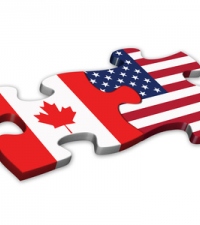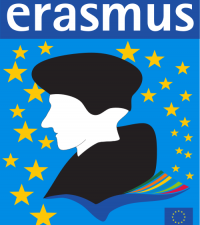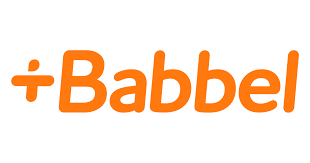Same language, different ball-game

Here is a story about the language experience in a country that sounds similar at first.
Before moving to Canada the only consideration I gave to language was with regard to accent; I remembered hearing somewhere that Canadians had a softer accent than their neighbors across the border and I was relieved; easing in gently sounded like a good plan. I was coming from England so it wasn’t as though I was going to be unintelligible to anyone – or so I thought.
You say tomayto, I say tomahto
I ran into problems on day two. I was staying in a hotel with my husband while we looked for rental accommodation. I had a tiny cut on my finger that kept catching on things so, on my way out to dinner one evening, I asked at reception for a plaster. The young woman at the desk shot me a blank look and shifted uncomfortably in her chair before giving a little cough and asking if I'd like an elastic band.
This response hadn’t featured on my list of “possible outcomes” and I was momentarily floored, trying to imagine some Canadian ingenuity linking the humble elastic band and the world of medicine. It’s an expat occupational hazard, to view every encounter as representative of the whole country – as though nothing random or strange ever happens “at home”. This can be a problem if the first person you befriend happens to be in outpatient therapy.
After I wiggled my finger under her nose and explained about the annoying cut, her face lit up, "Aaahhhh, a BAND aid!" she exclaimed triumphantly.
That was my first experience of speaking the same language yet appearing incomprehensible; a truly odd and unexpected feeling.
Wait a minute, let me guess…
I've been mistaken for a Kiwi, an Aussie and, my personal favorite, a South African: "Aiy had a faarm in Aafrikah..." Have you seen Out Of Africa? LOVE that film, although Karen Blixen had a Danish accent didn’t she? But anyway, I digress…
I'm starting to enjoy having some fun with it now; I tell people I'm Irish when they ask where I'm from (which is true), and see which ones claim to spot an Irish accent (I don't have a trace, I expatriated when I was eight).
The language of marketing
Brand names are big culprits when it comes to reducing a language to insider-only status. Calling a plaster a Band-Aid was just the tip of the iceberg: tissues are Kleenex and instead of taking a painkiller for a headache, you pop a Tylenol. School was an education for more than just my daughter when I was asked to kit her out with Duotangs! Was that a compulsory hairstyle?
I’m not deaf, I’m just new here…
When I'm tired or not concentrating, I sometimes have to ask people to repeat themselves - the sequence of inflections and enunciations they just uttered with such casual fluency doesn’t fit with any template I hold in my sub-conscious, so I can't hazard a guess at what they said. This can make me feel pretty stupid; especially when they asked a simple question like “Would you like ice with that?”
Asking someone to repeat something when you speak the same language doesn’t do anything for your live-by-the-seat-of-your-pants, expat image.
Which leads to my next point - a situation like that immediately reminds me I'm a "foreigner" and I feel self-conscious and conspicuous, when really, the speaker hasn’t noticed that at all - they may just think my kids have made me slightly deaf or that the room is noisy and it's perfectly natural I didn't catch what they said the first time round. For all I know, they may have been repeating themselves in a noisy restaurant all evening, to foreigners and natives alike.
Say what you mean, mean what you say
While some have difficulty penetrating the infamous British reserve, I find Canadian conscientiousness hard to gauge. I’m never sure if people are inviting me for coffee just to appear polite, with no intention of pursuing interaction beyond a brisk “Oh you’re new here? Best of luck then…” before making good their escape.
I get all kinds of awkward deciding whether to reciprocate by arranging something or just say, "that would be lovely" and leaving it up to fate. I find the British more direct - but I guess that's because I'm familiar with the non-verbal cues. And don't get me wrong I like the politeness. I held the door open for a kid at school today and he said "Thank you, miss" A girl could get used to that!
By Aisha Ashraf, a freelance writer and author of the popular blog Expatlog where she can be found strung out on caffeine, humorously dissecting the peculiarities of Canadian life for her own amusement and the benefit of future generations.
- My Life Abroad -
A selection of expat stories

"A fun compulsive read!"
J. Matcham, Amazon
"I strongly advise people ready to live abroad to read this book!"
Patrice, Amazon

 5 Top International Education Systems For Expat Kids
5 Top International Education Systems For Expat Kids Finding a job after earning your TEFL Certificate abroad
Finding a job after earning your TEFL Certificate abroad Guide to the Erasmus Programme
Guide to the Erasmus Programme Babbel
Babbel The Ultimate Guide: Buying Real Estate as an Expat
The Ultimate Guide: Buying Real Estate as an Expat  Basics to Real Estate Investing for the Long Term
Basics to Real Estate Investing for the Long Term